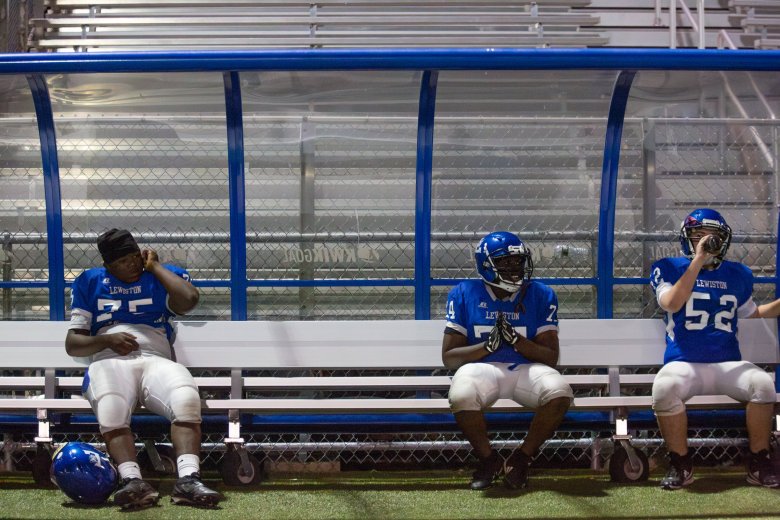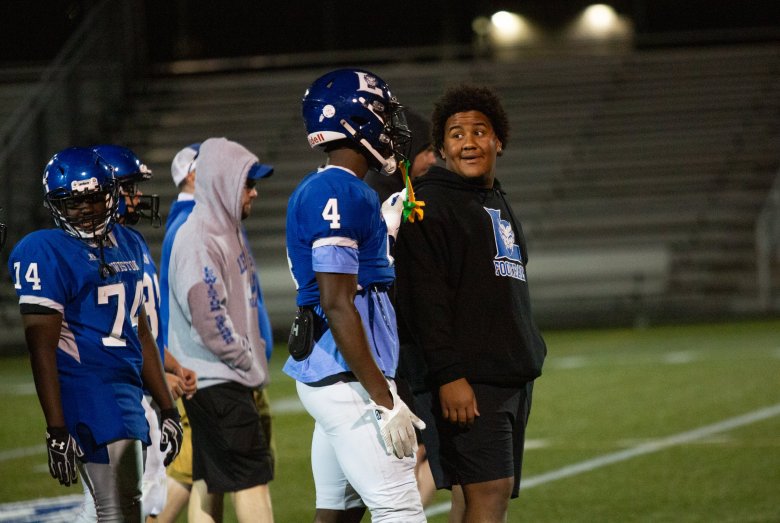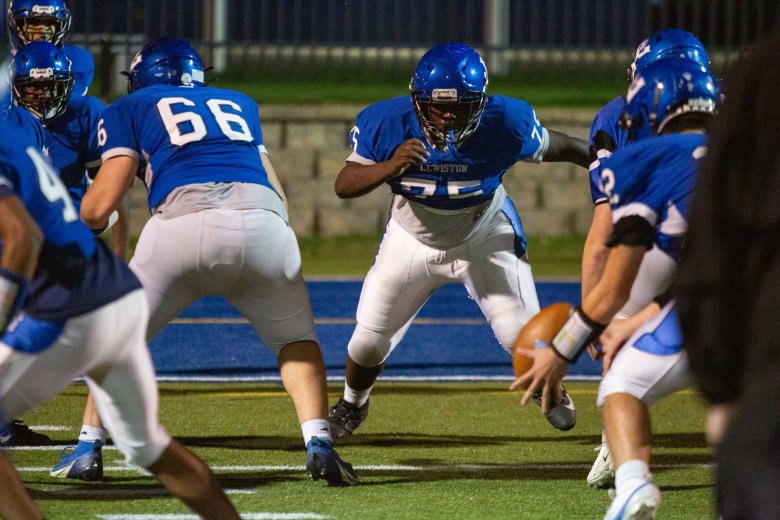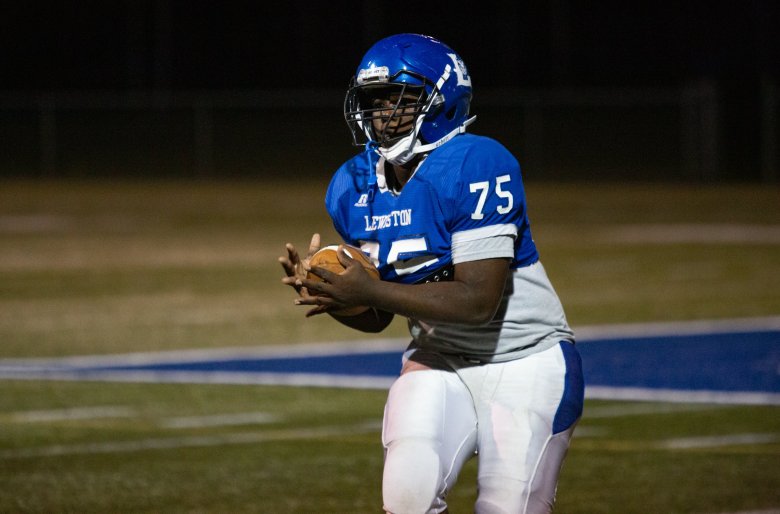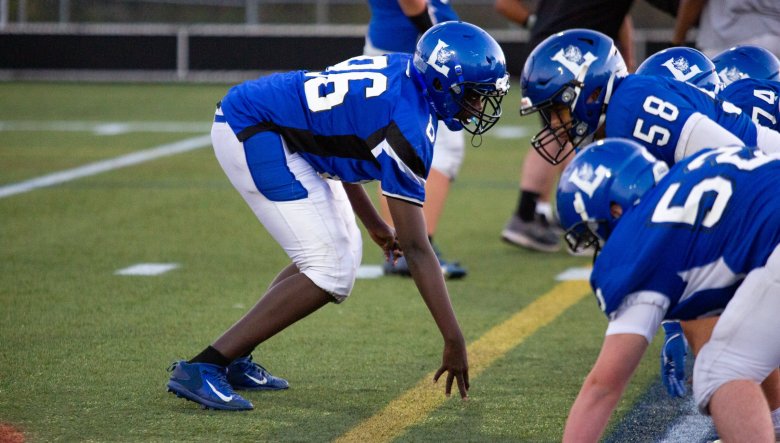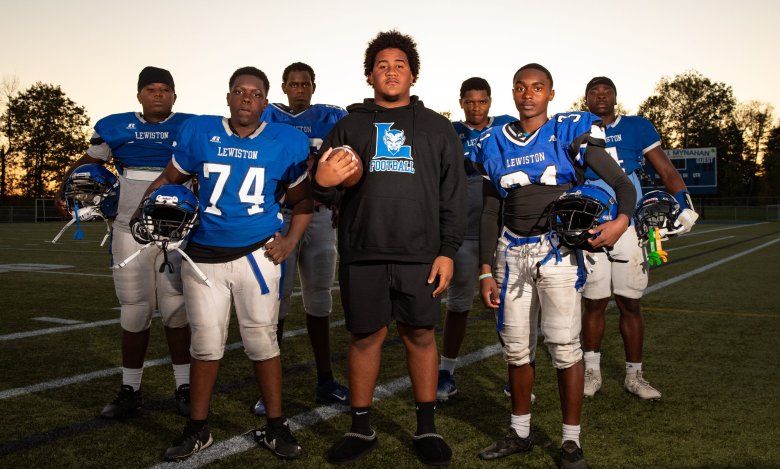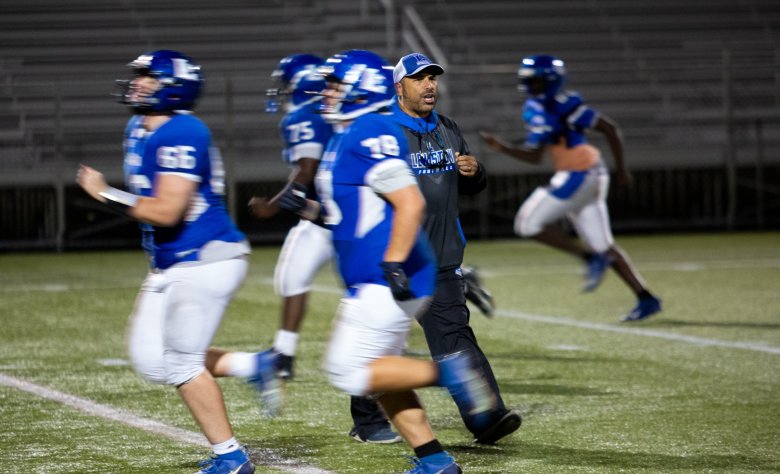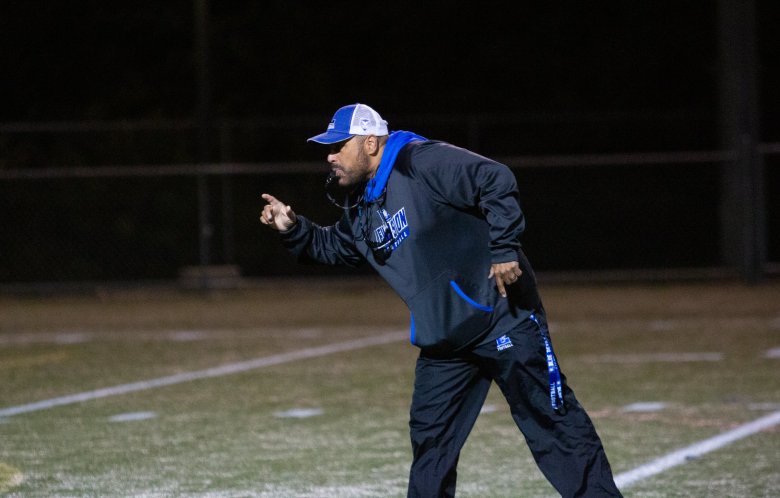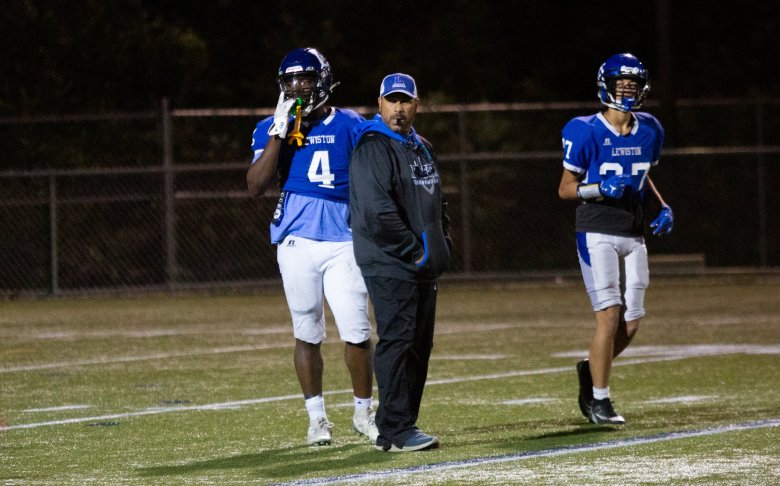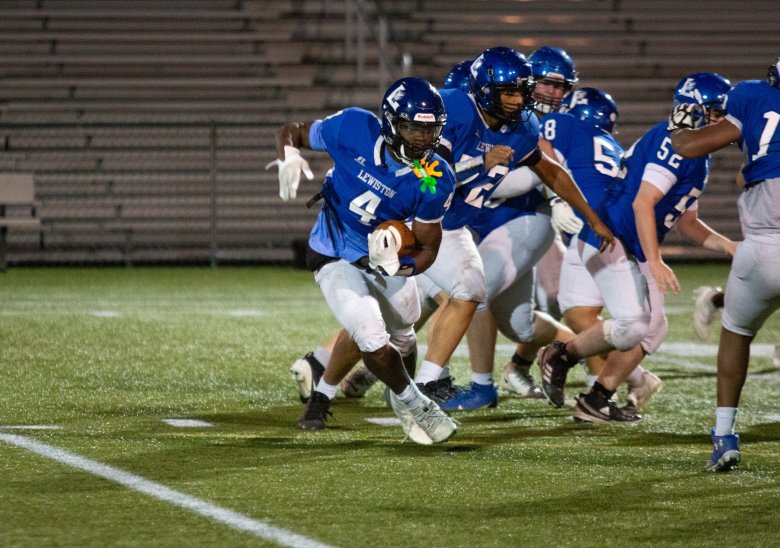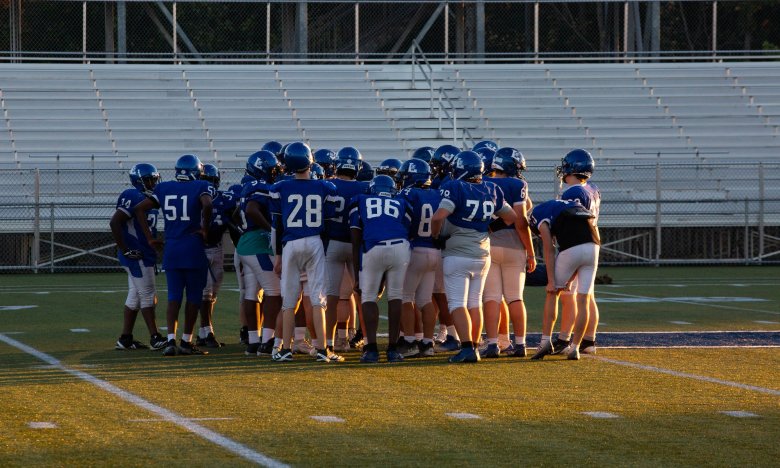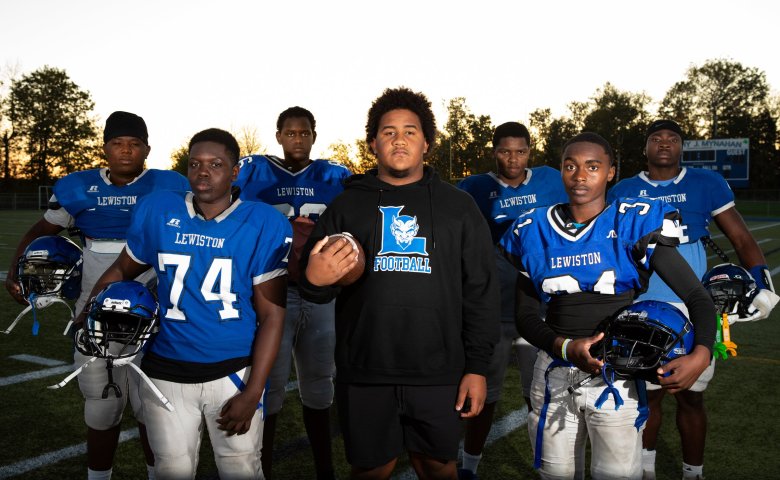
Albano Mortagua never dreamed of playing American football before moving to Lewiston from Angola three years ago. But he had watched NFL games in Angola, and that inspired him to try playing for Lewiston High School.
The sophomore was on the team last year but never played. He made his debut this fall as the starting center in the season opener against Massabesic. His family watched proudly from the bleachers.
“My dad took a lot of videos,” Mortagua said. “For them to see their son actually on the field and playing, starting varsity, Friday Night Lights. It was perfect. He was very happy.”
Mortagua is one of seven players on the Lewiston football team who either immigrated to the United States or are children of immigrants.
“As a coach at Lewiston, you’ve got to be aware that our demographics and population in our building have changed,” Lewiston athletic director Jason Fuller said, “and you have to change who you’re targeting and trying to find new ways to excite different kids to come in and join a sport, get excited about it, try it and see if they can gain the skills to be successful over time.”
The Blue Devils (0-8) will host rival Edward Little (1-7) in the regular season finale at 3 p.m. Saturday.
New Mainers have long competed in soccer and track and field teams at Lewiston. Now, Fuller said, he’s noticed more new Mainers competing in tennis, swimming, volleyball and football.
“I think that’s a credit to our community, more than anybody,” Fuller said. “We’ve got a ton of different ethnic groups out here in our community, so each ethnic group has a different organization they may run to. I think everybody does their share in our community.”
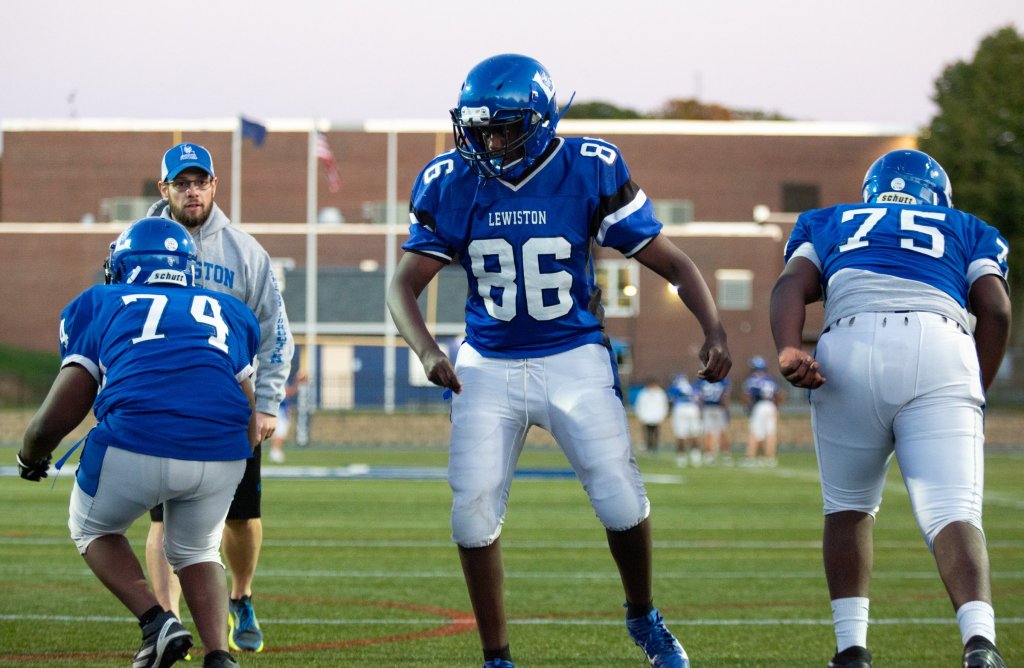
Kim Wettlaufer, a 1980 Bates College graduate, has long helped immigrant families acclimate to the Lewiston school system. He served as executive director of the Trinity Jubilee Center in Lewiston from 2005 to 2014.
Wettlaufer, a former Lewiston Daily Sun sportswriter who coached track and cross country at Lewiston High from 1981 to 1993, and then again from 2013-17, focused on helping new Mainers get into athletics. He cited doctor physicals and onboarding paperwork as challenges for new Mainers, so he leaned on aid from translators. That’s still something he’s involved in today.
FEAR, JOY AND PHYSICALITY
The new football players say leadership, fitness and trying a new experience drew them to the game.
Josue Luis, a senior, moved here from Angola with his family as the youngest of three children in 2016.
“I have a couple of my friends who are also from where I’m from, and they asked me why I play football and stuff, and they’re like, ‘You’re very brave, I could never,’” Luis said. “But a lot of people want to try it, they’re just intimidated.”
For others, the aggressive nature of football is an allure. Sophomore Everson Silva, who moved to the United States from Angola two years ago, grew up playing soccer but was was intrigued by the physicality of football.
“He’s the kind of kid that, when he makes the tackle, you can just see the joy of him playing the game,” Lewiston football coach Jason Versey said.
Freshman Hamza Mohamed was born in Kenya and moved to America 11 years ago. He grew up playing soccer but decided to try football this season. He acknowledged he was afraid of getting injured, as well as not understanding the plays.
“Whatever you’re scared of, eventually you’re going to get used to it,” Mohamed said. “My first time (in pregame practice), I was terrified. I was in front of (junior Collin Churchill) and then he just grabbed me by my pads, and he kept on walking, pushing me forward. If you’re always going to be scared, then why live life if you’re always going to be scared?”
Freshman Musharraf Abdi relates to the fear of unfamiliarity. He initially started playing football after his mom encouraged him to try the sport as a way to improve his fitness.
“I can’t even completely lie, I had no idea what I was doing on the first day,” said Abdi, who was born in Somalia but moved to the United States when he was young. “I remember, it was summer conditioning. I wanted to quit so bad. I was about to start crying, it was really bad.”
LEARNING CURVE
Terms like fumble, line of scrimmage, red zone and even touchdown were also unfamiliar to Abdi, so he had a lot to learn, but he has a lot of people to help him.
“Here we say that we’re a family, and that’s true in a sense,” Abdi said. “(I have) so many new relationships and connections.”
One of those connections is with junior captain Yusuf Abdirahaman, who was born in the United States into a family that immigrated from Somalia in the 2000s.
“I like the brotherhood this football team has, everyone’s really close,” Abdirahaman said. “Well, not all of us, but some of us are pretty good friends outside of sport. I think football makes them my best friends.”
“I see a lot of guys grinding out here; it just makes me feel like I should be one of those people out there helping teammates out,” added football player Isheja Yvan, who grew up playing soccer in Rwanda. “It’s always good to try out new things. It’s always good to open up to new things, new people, places. Compared to soccer, it’s more aggressive. You have to be aggressive all times. You’re touching people a lot of times; soccer, it’s not as competitive as football.”

